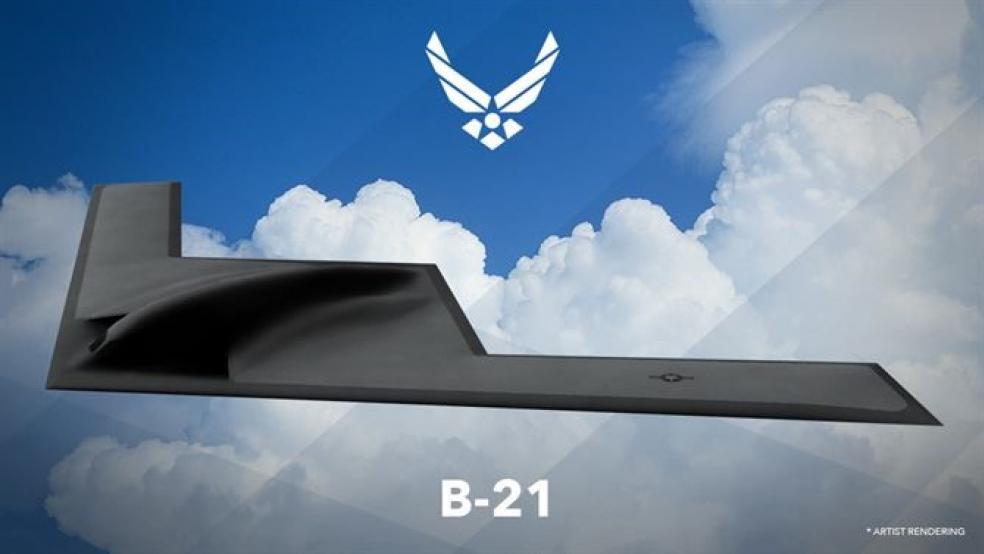Congress should consider taking a closer look at how the U.S. Air Force picked the winning bid for its next-generation bomber, according to a recent independent assessment.
A Congressional Research Service analysis released late last week noted that the cost estimate offered by Northrop Grumman for the Long Range Strike-Bomber, designated the B-21, “came in substantially below DOD’s independent estimates.”
Related: How Will the Air Force Pay for its Budget-Busting Next-Generation Bomber?
Capitol Hill lawmakers have been curious about Northrop’s proposed price tag since the contract award was announced last October. Senate Armed Services Committee chair John McCain (R-AZ) has explicitly asked the Air Force to disclose the winning figure, but, like much of the B-21 program, the dollar amount remains under wraps.
Price estimates cobbled together by various agencies within the Defense Department concluded it would take more than $23 billion to develop the B-21 and another $56 billion to buy 100 aircraft, costing around $560 million apiece.
The bomber program is expected to cost more than $1 trillion over its lifetime. Northrop beat a team from Lockheed Martin and Boeing to develop and build the plane.
Related: The Air Force’s New Bomber Gets a Name: Meet the B-21
Lawmakers “may wish to revisit DOD’s cost estimation to understand why the estimated cost was significantly higher than the actual bid,” reads the report.
“In addition, Congress may wish to use its oversight mechanisms to verify that the contract can be executed at the price bid,” since in the past “some contractors have been accused of bidding unrealistically low prices to win a given contract, then using their incumbency to appeal for higher appropriations,” according to the report.
The analysis will likely serve as ammunition for skeptical lawmakers, like McCain, who aren’t convinced the Air Force can successfully execute such a high-profile effort, given its past and ongoing debacles with its tanker replacement, the F-22 Raptor and the F-35 Joint Strike Fighter.
Related: How the Air Force’s New Planes Could Bankrupt the Pentagon
Congress might also want to review its oversight set-up for the B-21 program before it effort gets fully underway.
The Air Force is managing development of the bomber through its Rapid Capabilities Office, an agency designed to fast-track high-priority, largely classified programs.
"Although this approach may improve the speed and ease of the acquisition, Congress has relatively little experience overseeing rapid acquisitions processes," the 18-page study states. "Congress may wish to consider whether its ability to oversee such acquisitions is sufficient and if the advantages gained through rapid acquisition processes outweigh the challenges of oversight when applied to major defense acquisition programs."
Lawmakers might also “wish to consider whether such Members’ interests require a greater level of access to program data, or whether the issues can be adequately addressed under the current rules.”





